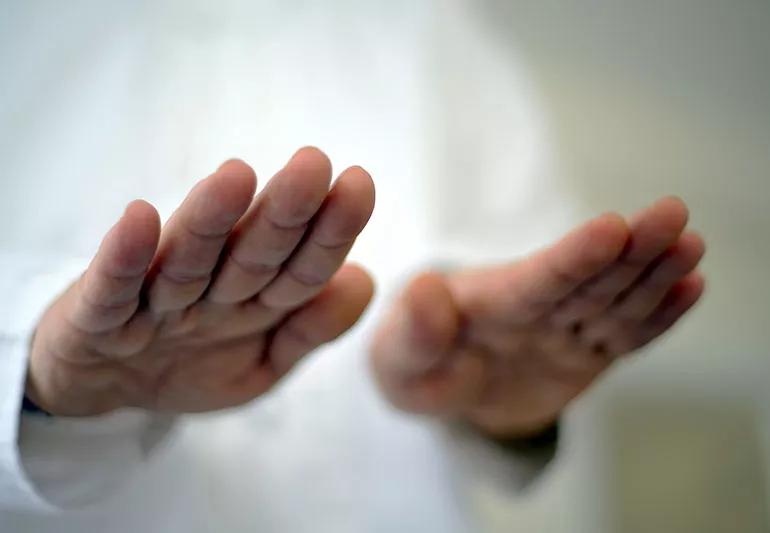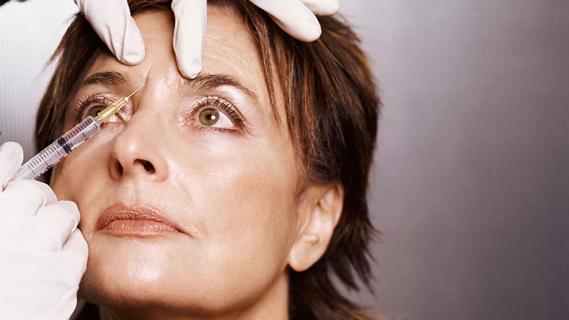Here’s how this energy-healing practice can help balance you

Maybe you’ve heard of reiki but don’t quite know what it is. Maybe you’re considering reiki but aren’t sure whether it’s right for you. Or maybe your doctor has suggested reiki as a form of therapy complementary to your existing medical treatments.
Advertisement
Cleveland Clinic is a non-profit academic medical center. Advertising on our site helps support our mission. We do not endorse non-Cleveland Clinic products or services. Policy
Whatever your questions, Reiki Master Victoria Bodner, LMT, is here to help. She walks you through the basics of reiki — a safe, gentle, non-invasive form of natural hands-on, energy-based healing — and what it can do for your body.
Reiki is an energy healing technique that promotes relaxation, reduces stress and anxiety through gentle touch. Reiki practitioners use their hands to deliver energy to your body, improving the flow and balance of your energy to support healing.
Mikao Usui developed reiki in the early 1900s, deriving the term from the Japanese words rei, meaning “universal,” and ki, which refers to the vital life force energy that flows through all living things. Now, reiki is used all over the world, including in hospitals and hospices, to complement other forms of health treatments.
“Reiki aids in healing by helping people become energetically balanced — physically, emotionally, mentally and spiritually,” Bodner says.
Reiki promotes relaxation, stress reduction and symptom relief to improve overall health and well-being. It can:
Advertisement
Studies show that reiki treatment may create feelings of:
No. Reiki treatment should not be used as a substitute for the consultation of a physician or a psychotherapist.
“Reiki complements other types of medical and therapeutic treatments, and it can increase the efficacy of other types of healing,” Bodner says.
If you’re already in good health, though, regular reiki treatments can enhance your ability to respond to stress and serve as a form of preventive medicine.
“Because it works on the entire self – mind, body and emotions – and because it is universal life force energy, reiki may be successful in all types of physical, emotional, mental and spiritual healing,” Bodner says.
Reiki isn’t specific to any particular type of disease or condition but may help people with:
Reiki can also help you prepare for surgery, which may help boost your recovery afterward.
Reiki practitioners act as a conduit between you and the source of the universal life force energy. The energy flows through the practitioner’s hands to you.
“The patient determines the energy flow from the practitioner’s hands by taking only what they need,” Bodner says. “This helps the patient know that we are supporting them only in what they need rather than what we think they need. This makes it the perfect balance to meet the patient’s needs.”
Reiki treatments typically last about 50 minutes. During a session, you’ll lie on a massage table fully clothed, as your reiki practitioner gently places their hands, palms down, on or just above your body in specific energy locations. They use a series of 12 to 15 different hand positions.
“The length of time that the practitioner leaves their hands in each position is determined by the flow of energy through their hands at each location,” Bodner explains.
Reiki differs from other touch therapies in that there is no pressure, massage or manipulation involved.
“You may experience the energy in the form of sensations like heat, tingling or pulsing where the Reiki practitioner has placed their hands,” Bodner says. “Sometimes, people feel sensations moving throughout the body, while other people do not perceive any change at all.”
Most people feel very relaxed and peaceful during reiki treatment, and many fall asleep during the process.
Advertisement
Learn more about our editorial process.
Advertisement

Bleeding is a risk and warrants taking care, but the reward of this lifesaving medication is great

Severe and debilitating headaches can affect the quality of your child’s life

With repeat injections over time, you may be able to slow the development of new wrinkles

Although it can be alarming, it’s normal to experience blood clots during menstruation

Stretch before heading outside, keep proper form and avoid jerking or twisting to throw snow

Type 2 diabetes isn’t inevitable with these dietary changes

Applying a hot or cold compress can help with pain